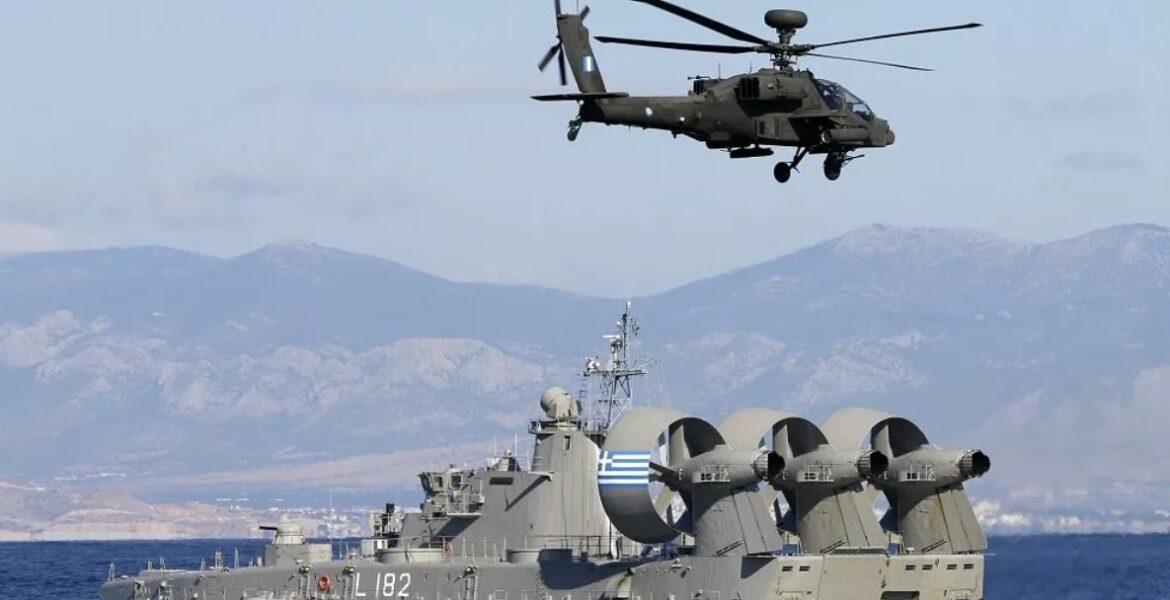Greece's participation in NATO mainly counts losses - from the uprooting of Constantinople's Greeks in 1955 to the junta and the Turkish invasion of Cyprus, but also the occasional hot episodes in the Aegean Sea and Evros.
Seventy years have passed since Greece joined the Atlantic Alliance.
The long journey, which was interrupted for six years (leaving the military wing of the alliance in August 1974 but to return in October 1980) and resumed when the country had to join the European Union, is full of losses for Greece.
For the chairman of the Thessaloniki Commission on International Recession and Peace (EDYETH) Nikos Zokas, in order to understand the exact role of the Alliance, the reason for which it was established must be understood.
"NATO was created in opposition to the then Soviet Union when as a winner in World War II it really radiated not only throughout Europe, but also around the world, and those peoples who resisted fascism looked towards the future with optimism," he said.
"At the same time, the effects of World War II, which began after the October Revolution, struck a chord with the global colonial system.
"So NATO was created to defend the interests of the monopoly groups of the bourgeoisie of the countries that joined the Alliance and in no case was it created to defend the interests of the peoples.
"This is clearly shown by history because by in 1952, when Greece and Turkey joined NATO at the same time, various events took place that were and continue to be against the interests of the Greek people."
Zoras recalled a series of bloody events in which the Alliance played the role of a mere spectator, such as the uprooting of the Greeks from Constantinople "during the black September of 1955, Greece and Turkey were two allied countries under NATO."
"The US, Britain and NATO were directly involved in the Greek and Cypriot coup, and Turkey's intervention in Cyprus, which this year will mark the 48th anniversary of the occupation of 40% of Cyprus," he said.
"In no case did NATO defend our interests and sovereign rights.
"It is characteristic that under the pressures and feelings of the Greek people after the junta was ousted with everything it had done and after the events in Cyprus, Karamanlis was forced to withdraw the country from NATO for six years but put it back 70 days before its accession to the EEC.
"Why did he do it? Because both NATO and the EU are tools of capital against the peoples to safeguard their interests."
Zokas characterises it as a "myth that NATO secures Greece" and explained that Greece, through the bloc, is receiving pressure that even concerns its national sovereignty."
"NATO will always defend monopolies and the bourgeoisie," he said.
"And of course in the case of Greece and Turkey it seems very clear when an 'allied' country like Turkey threatens in everyway possible another ally, Greece, and at the same time NATO whistles indifferently," Zokas added.
He said there are no borders within the Alliance, so "resolve any differences between you".
"NATO is pushing for Turkey not to be cut off from this alliance because its army is second (numerically) within NATO after the US military," the EDYETH chairman continued.
"In this direction, he is pushing the Greek government, which accepts all this, even to reduce the national sovereignty of the country," he explained.
He added that the Alliance would push for co-management of the Aegean in order to satisfy business interests and the bourgeoisie in Greece and Turkey.
Zokas considered that the European Union and the Atlantic Alliance are two forces of the same wheel, ie. monopoly interests, and pointed out that "it is no coincidence that 21 of the 30 EU countries are also members of NATO."
He added that "NATO, as many say, is a tool of the United States to oppress the Europeans," while it is highlighted that especially lately "we see in the Balkans that first a country joins NATO and then joins the EU, it is clear."
Further, referring to the expansion of the bloc, he stressed the effort made by the Alliance in other countries, such as Ukraine, in an effort to put pressure on Russia and China.
READ MORE: From Kiev to Larissa in 23 hours: The Greek teacher who left Ukraine.


